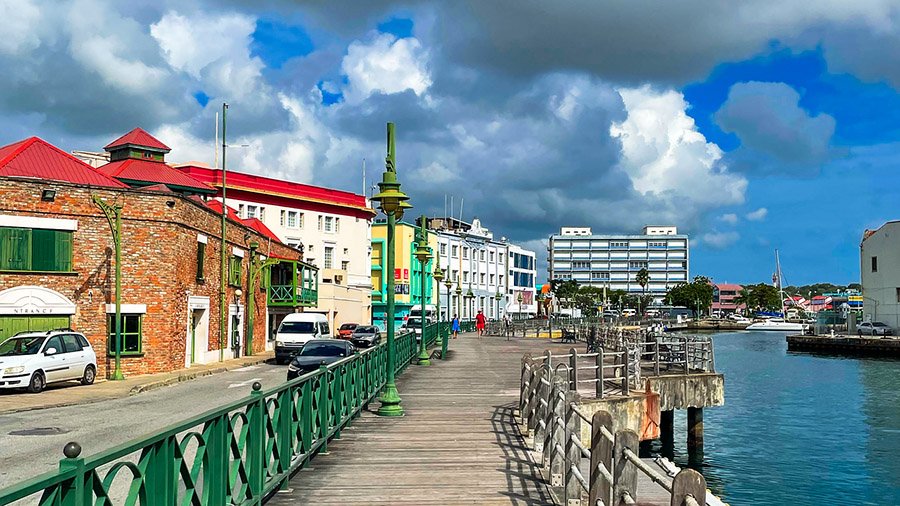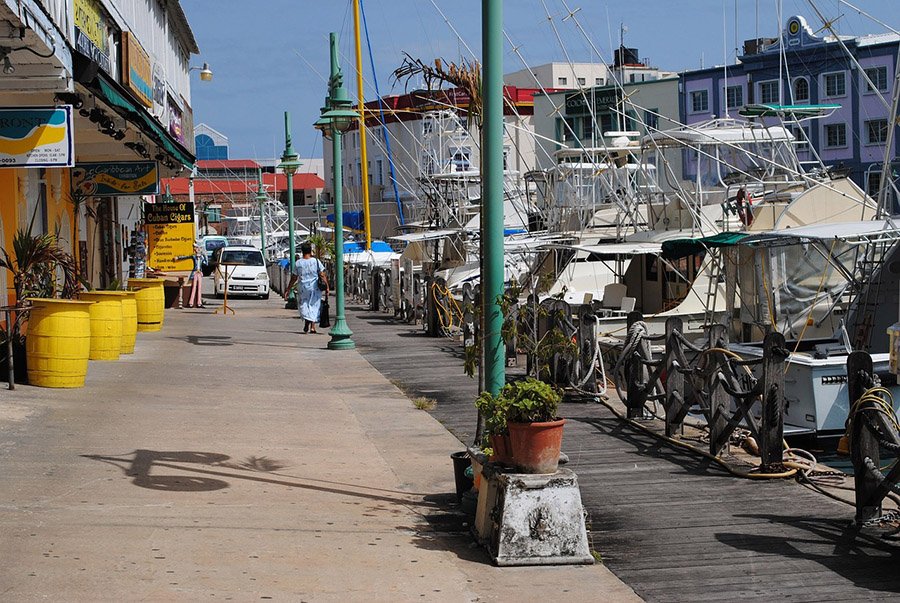The Barbadian government introduced the Welcome Stamp Visa, a program designed to attract remote workers and digital nomads to the island for a year-long stay. This initiative offered professionals the opportunity to work from the Caribbean without being subject to Barbados’ income tax, making it an appealing option for those looking to combine work with a tropical lifestyle. The visa cost $2,000 for individuals with existing employment and granted a 12-month residency.
Freelance journalist Andrea Lo was among the many who took advantage of this opportunity. The prospect of working remotely from a Caribbean island while experiencing a new culture and exploring a region she’d never visited before seemed like a dream come true.
Arrival in Barbados
Upon arriving in Barbados, Lo was struck by the island’s natural beauty. The vivid blues of the Caribbean Sea and the rugged landscapes along the east coast made a strong impression. The vibrant local culture added to the island’s allure, with friendly people, unique cuisine, and an engaging history that captured her interest. Lo found a one-bedroom apartment on the south coast for $1,250 per month, including amenities like WiFi, water, electricity, and weekly housekeeping.
She enjoyed immersing herself in Barbadian culture, from learning Bajan creole to participating in a private cooking demonstration of fried flying fish with cou-cou, the national dish of Barbados. Despite the initial challenges of adapting to a new environment, Lo felt optimistic about her remote work year on the island.

Challenges During the Stay
However, the journey took an unexpected turn as COVID-19 cases resurged after the holiday season, leading to curfews and lockdowns. This not only limited social interactions but also hampered Lo’s ability to explore and make new friends. The restricted environment made it difficult to build a social network, contributing to a sense of isolation.
In April, a significant setback occurred when Barbados was covered in volcanic ash due to the eruption of La Soufrière in Saint Vincent and the Grenades, further disrupting daily life on the island. The ash fall affected visibility and public health, prompting additional shutdowns and restrictions. These unexpected events added stress to Lo’s remote work experience, creating an environment that was far from the ideal scenario she had envisioned.
Instances of Harassment and Safety Concerns
Despite the initial excitement about living and working remotely in Barbados, Lo soon encountered a series of incidents that made her feel unsafe. Street harassment became a constant problem, with catcalling and inappropriate comments occurring almost every time she left her apartment. The harassment ranged from suggestive remarks to outright aggressive behavior, creating a sense of vulnerability and fear.
One instance involved a man who commented on Lo’s appearance while she was taking pictures at the beach. He said he wanted to “put his aloe vera” on her, making her uncomfortable. In another situation, while walking down the street, a man shouted, “Leave that booty alone!” when she adjusted her shorts. Although some locals reassured Lo that this behavior was typical and harmless, she found it increasingly difficult to dismiss these encounters.
Another worrying incident occurred on the beach, where a man sat next to Lo and attempted to engage her in conversation. Despite her attempts to ignore him, he remained and stared at her, causing her to pretend to leave just to make him go away. These experiences made Lo anxious about exploring her new surroundings, leading to feelings of paranoia and withdrawal.

The Final Straw and Decision to Leave
The turning point came during a lockdown in March, when Lo was walking to the supermarket alone in the afternoon. The streets were largely empty due to the lockdown, and a man drove up to her, attempting to start a conversation by saying he sold beach chairs. He then suggested that she get into his car. Lo declined, but the man became aggressive, demanding she engage with him. He asked if she wanted a husband, and when she refused, he eventually drove off. The encounter left Lo shaken and scared to venture out alone.
Lo reported the incident to her property management, who then filed a report with the police. They discovered that a similar incident had occurred with a male resident, though it was unclear if the same person was involved. Despite the report, the authorities were unable to track down the man, and Lo felt increasingly unsafe.
Following this encounter and other unsettling experiences, Lo decided to leave Barbados early, cutting her year-long stay to just four and a half months. The constant harassment, coupled with a lack of effective support from local authorities, made it clear that remaining on the island was not a safe or viable option for her.
Reflection on the Experience
After returning to Hong Kong, Andrea Lo reflected on her time in Barbados and the unexpected challenges she faced. She questioned whether she could have done things differently to avoid the harassment and the sense of danger. The realization that none of her prior research indicated the level of street harassment she encountered made her consider the importance of thorough due diligence before relocating to a new country, especially for solo travelers.
Lo also wondered if her unique appearance—being an Asian woman with pink hair—played a role in the unwanted attention she received. Cultural differences and the normalization of street harassment in some places led her to conclude that travelers, particularly women, should be aware of these issues when planning remote work abroad.
Conclusion
Lo’s experience in Barbados underscores the critical importance of safety for remote workers and digital nomads. While the idea of working from a tropical island may seem idyllic, safety concerns, cultural differences, and unexpected challenges can quickly turn a dream into a stressful ordeal.
Her advice for others considering remote work in unfamiliar places is to conduct thorough research, seek out local perspectives, and be prepared for the possibility of unexpected challenges. It’s also crucial to have a support system in place and know the local emergency contacts.
Ultimately, Lo’s story serves as a cautionary tale about the complexities of remote work abroad. She hopes her experience will encourage other remote workers to prioritize safety and take the necessary precautions to ensure their well-being while exploring new parts of the world.








Add comment